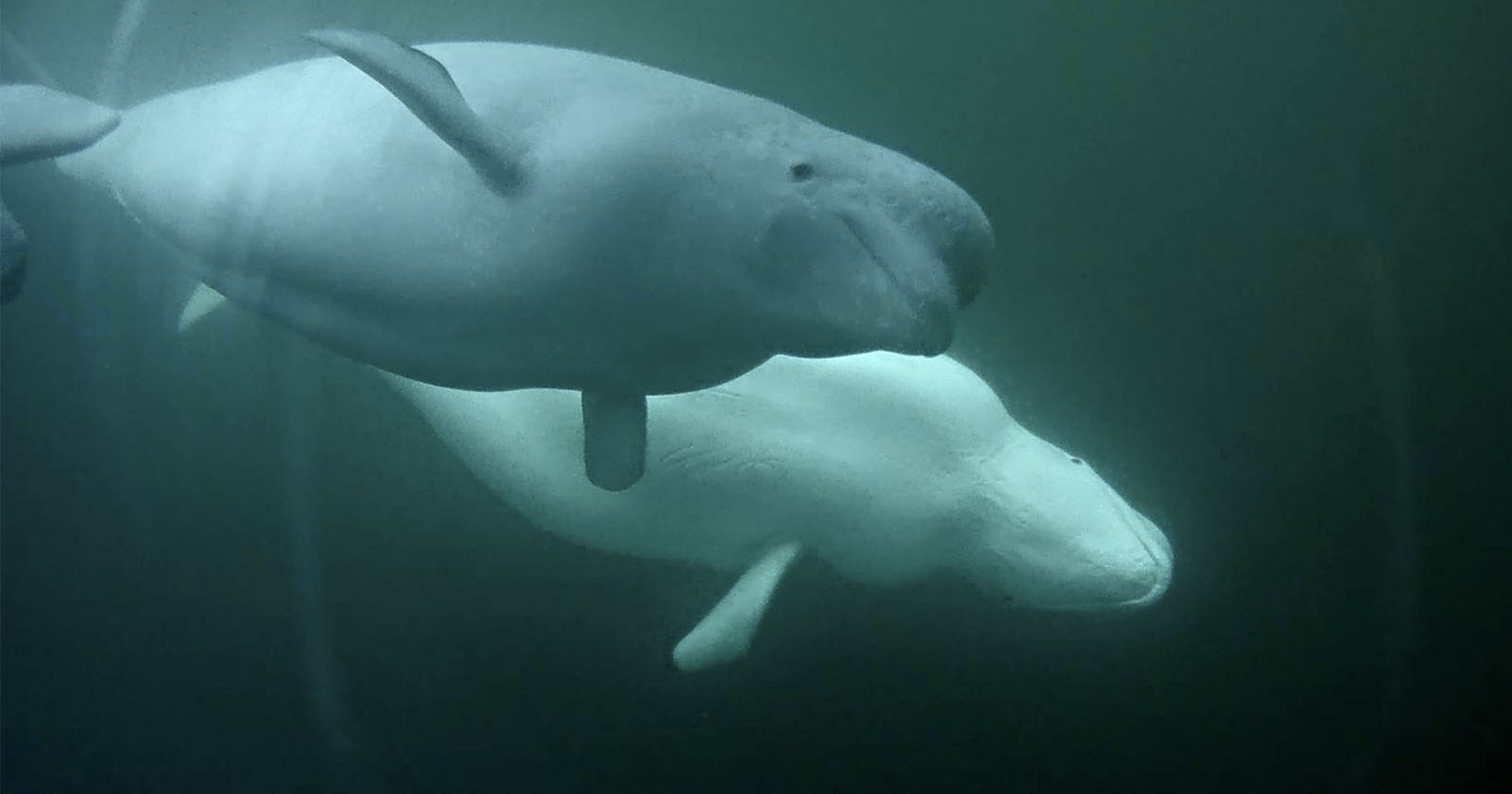This Livestream Camera Will Capture the Annual Beluga Whale Migration

A live video feed streaming the annual migration of 57,000 belugas that journey through Hudson Bay, Canada, has just gone live.
Not only can people enjoy the whales as they swim past the Beluga Cam, but viewers can contribute to the Beluga Bits citizen science project by taking and classifying photos. Almost 35,000 volunteers have made roughly one million classifications. This open-source research is a way of studying the Belugas, which occupy a remote habitat.
In previous years, Beluga Cam viewers spotted a polar bear hunting a beluga on the shore of the Churchill River and have even spotted two species of jellyfish that had never before been recorded in Hudson Bay.
Belugas use the sea ice to hide from orcas, as the belugas’ lack of a dorsal fin allows them to squeeze beneath the ice. As ice disappears, it opens the Arctic to increased commercial shipping, bringing more underwater noise that threatens beluga communication and navigation.
Polar bears typically do not hunt belugas, opting for seals instead — they use the sea ice as a hunting platform, and while they’re on land, they’re fasting. As Hudson Bay’s polar bears arrive on land this summer and wait for the sea ice to return, researchers have found that even though they may try to scavenge terrestrial food sources or even attempt to catch beluga, they’re still losing about 1 kg (2.2 lbs) per day while on land.
The cameras are attached to boats that have guards around their propellers and have been set up by Polar Bears International (PBI) along with explore.org. PBI is the only nonprofit organization dedicated solely to polar bears and Arctic sea ice. Beluga Cam is launching to celebrate Arctic Sea Ice Day (July 15).
“Sea ice is essential for polar bears, belugas, and ultimately, all of us. It forms the foundation of the Arctic ecosystem and regulates Earth’s climate,” says Krista Wright, Polar Bears International Executive Director. “We hope Arctic Sea Ice Day inspires people to protect this incredible part of our planet. Every degree — and every decision — matters.”
Image credits: Courtesy of Polar Bears International
Source link


